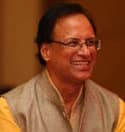Shri Jagat Singh Bisht
☆ Travelogue – New Zealand: A Morning Ritual in the Land of the Flat White # 3 ☆ Mr. Jagat Singh Bisht ☆
During our extended stay in New Zealand, a cherished morning ritual has taken root in our daily lives. Each day begins with a long walk through the serene neighborhoods, the crisp air carrying a hint of the sea and the promise of a new day. Along the way, we’ve adopted the delightful habit of pausing at a local café for a leisurely cup of coffee, a moment of calm amidst our explorations.
New Zealand’s coffee culture is nothing short of a revelation. These cozy neighborhood cafes, each with its unique charm, beckon with their warm and inviting atmospheres. The friendly baristas, often brimming with infectious Kiwi cheer, greet us as though we’re old friends. Inside, the scene is a delightful blend of the old and the new: elderly patrons sipping their morning brews, sharing stories, or indulging in a crossword puzzle, while younger professionals dart in to grab their takeaway cups before heading to work. We often find ourselves thumbing through local newspapers or glossy magazines, adding a touch of nostalgia to our mornings.
When we first arrived, our coffee choices leaned toward familiar favorites like cappuccinos and mochas. But it wasn’t long before the locals’ love for the Flat White intrigued us. A perfect harmony of velvety milk and robust espresso, the Flat White is a testament to New Zealanders’ passion for coffee, and it has since become our drink of choice. Occasionally, we pair it with a warm cheese scone or a sweet muffin, elevating the experience into something almost ceremonial.
Interestingly, cafes here open early, around 7 am, to cater to the early risers and close by 3:30 pm, making evenings without a café outing feel a tad incomplete. How we wish these delightful spots stayed open late, offering the joy of a quiet evening coffee!
Our favorites include Vero Café in Unsworth Shops, Lulu Café in Wairau Valley, and Tob Café in Rosedale. Each has its signature touch, yet they all share a commitment to crafting a superb cup of coffee. Further afield, the coastal charm of Devonport and the bustling energy of Takapuna have provided memorable coffee moments, blending the aromas of fresh brews with the stunning views of the surrounding landscapes.
New Zealand’s coffee culture is steeped in its people’s dedication to quality and community. The Flat White, with its origins hotly debated between Kiwis and Australians, is more than just a drink—it’s a cultural emblem. The sheer number of independent cafes here speaks to a nation that takes its coffee seriously. In fact, New Zealand has more cafes per capita than even New York City, underscoring its status as a global coffee hotspot.
As our days here continue, the morning ritual of walking and pausing for coffee has become more than a habit—it’s a connection to the heart of New Zealand’s culture. Whether in the bustling streets of Auckland or a quiet suburban nook, these moments, and the exceptional coffee that accompanies them, are memories we’ll savor long after we leave.
#coffee #auckland #newzealand
© Jagat Singh Bisht
(Master Teacher: Happiness & Well-Being, Laughter Yoga Master Trainer, Author, Blogger, Educator, and Speaker.)
Founder: LifeSkills
A Pathway to Authentic Happiness, Well-Being & A Fulfilling Life! We teach skills to lead a healthy, happy and meaningful life.
The Science of Happiness (Positive Psychology), Meditation, Yoga, Spirituality and Laughter Yoga. We conduct talks, seminars, workshops, retreats and training.
Please feel free to call/WhatsApp us at +917389938255 or email [email protected] if you wish to attend our program or would like to arrange one at your end.
≈ Editor – Shri Hemant Bawankar/Editor (English) – Captain Pravin Raghuvanshi, NM ≈













